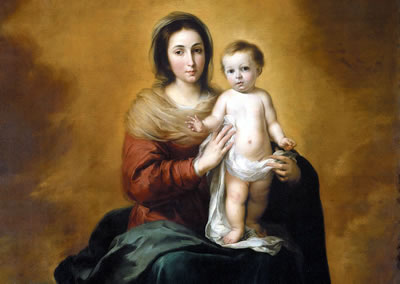
From the Director
One summer, as a seminarian, I was a chaplain in a Level-1 trauma center at Mount Sinai Hospital, Chicago, Illinois. Generally, I attended to the emergency room section. However, at one point I asked to begin to visit the maternity ward because I spoke Spanish and many of the women were Spanish speaking only. I was hesitant about going thinking that, as a man, what could I converse with them? I went on my first visit but felt the conversations were awkward. Often, I was at a loss for words. Later, I shared my experience with a group of fellow chaplains. The female chaplains inquired about what I asked the women. Did I ask how long the labor was? How difficult the labor was? How much did the baby weigh? Of course, those questions did not occur to me. When I went back to the maternity ward, I made the inquires, and the conversations changed. They were more engaging, and the mothers wanted to talk about their experiences of birth.
 As a priest in Chile, I had a remarkable experience of being a friend to Rosa, a very poor woman who suffered from depression. She had lost custody of her two children because she couldn’t keep a job due to her psychological condition. Rosa made a living by selling small handicrafts she made out of her little choza (shack) where she lived. Often, she would come by the parish to converse with me about her difficult life. Her only desire was to regain custody of her two children. I took pity on her and often bought her small handicrafts. I prayed that her life would become better. One day, she came to share exciting news with me. I wondered if she had regained custody of her two children. Not so. Rosa wanted to share the news that she was pregnant with twins! I thought this was a divine joke and wondered how could this woman handle such a burden. Yet, upon looking on her face, she was radiant with joy. Rosa proclaimed, “I am so happy that God considers me worthy enough to still give life!” At that moment, I felt like Elizabeth receiving Mary’s news of the Incarnation. Rosa wanted to rejoice with a friend, and I was honored enough to be that friend.
As a priest in Chile, I had a remarkable experience of being a friend to Rosa, a very poor woman who suffered from depression. She had lost custody of her two children because she couldn’t keep a job due to her psychological condition. Rosa made a living by selling small handicrafts she made out of her little choza (shack) where she lived. Often, she would come by the parish to converse with me about her difficult life. Her only desire was to regain custody of her two children. I took pity on her and often bought her small handicrafts. I prayed that her life would become better. One day, she came to share exciting news with me. I wondered if she had regained custody of her two children. Not so. Rosa wanted to share the news that she was pregnant with twins! I thought this was a divine joke and wondered how could this woman handle such a burden. Yet, upon looking on her face, she was radiant with joy. Rosa proclaimed, “I am so happy that God considers me worthy enough to still give life!” At that moment, I felt like Elizabeth receiving Mary’s news of the Incarnation. Rosa wanted to rejoice with a friend, and I was honored enough to be that friend.
As in the Gospels, women were the main supporters of Jesus’ mission (Luke 8: 1-3) and accompanied Him even to the Crucifixion (Luke 23: 49).
Lastly, a couple of years ago, I was sitting with a relative of mine who talked about her struggles with menopause. In the conversation she asked, “Do you priests get training into how to accompany women struggling with menopause?” I searched my head and realized that we do not. She inquired, “aren’t women the majority of the people in the church, how can you not get some sort of training in this issue?” She was right. As a priest, women are our valuable partners in the mission. As in the Gospels, women were the main supporters of Jesus’ mission (Luke 8: 1-3) and accompanied Him even to the Crucifixion (Luke 23: 49). As missionaries, we wish to recognize the valuable contributions women and children have made, and our need to adequately support their needs. It was a trademark of Jesus’ ministry, and we are asked to imitate Him.